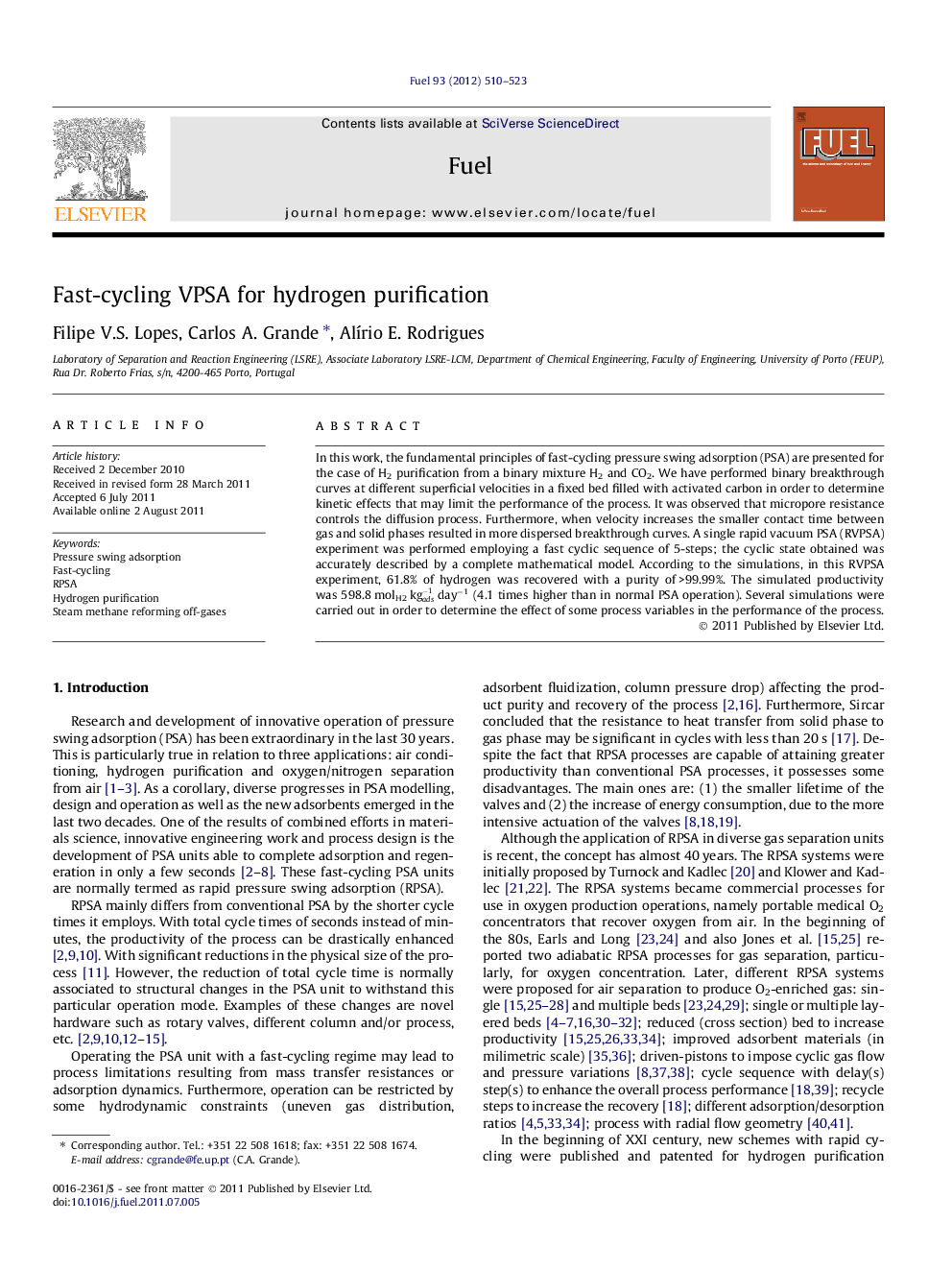| Article ID | Journal | Published Year | Pages | File Type |
|---|---|---|---|---|
| 6645087 | Fuel | 2012 | 14 Pages |
Abstract
In this work, the fundamental principles of fast-cycling pressure swing adsorption (PSA) are presented for the case of H2 purification from a binary mixture H2 and CO2. We have performed binary breakthrough curves at different superficial velocities in a fixed bed filled with activated carbon in order to determine kinetic effects that may limit the performance of the process. It was observed that micropore resistance controls the diffusion process. Furthermore, when velocity increases the smaller contact time between gas and solid phases resulted in more dispersed breakthrough curves. A single rapid vacuum PSA (RVPSA) experiment was performed employing a fast cyclic sequence of 5-steps; the cyclic state obtained was accurately described by a complete mathematical model. According to the simulations, in this RVPSA experiment, 61.8% of hydrogen was recovered with a purity of >99.99%. The simulated productivity was 598.8 molH2 kgads-1 dayâ1 (4.1 times higher than in normal PSA operation). Several simulations were carried out in order to determine the effect of some process variables in the performance of the process.
Related Topics
Physical Sciences and Engineering
Chemical Engineering
Chemical Engineering (General)
Authors
Filipe V.S. Lopes, Carlos A. Grande, AlÃrio E. Rodrigues,
